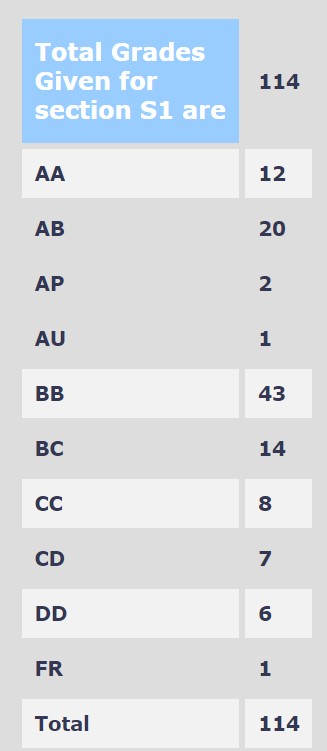Review by
Satush Parikh, 2025(BTech.)
Course Offered In
Autumn 2022
Instructors
Professor V.M.Gadre
Prerequisites
None. Core course for Elec B.Tech and DD
Difficulty
Moderate
Course Content
The course is divided into four Modules.
- Module 1: Systems and their properties: linearity, shift-invariance, causality, and stability. Linear Shift Invariant (LSI) Systems and their detailed analysis. Convolution and its properties
- Module 2: Fourier Series and Fourier Transforms. Fourier Domain Analysis of Signals and Systems.
- Module 3: Sampling and Reconstruction of bandlimited signals - the Nyquist/Shannon/Whittaker Sampling Theorem: its consequences, implications, and applications. Introducing discrete time signal processing.
- Module 4: Generalized Transform Domains – The Laplace Domain and the Z-Domain
Feedback on Lectures
The instructor is enthusiastic and passionate about teaching and takes his words very seriously. Blackboard is used for teaching and hence taking down notes is necessary. Sufficient examples are discussed. The instructor generally takes a round in the class after giving a problem to see how the students approach the questions. Challenge problems are frequently offered, and solving them earns credit. Although attendance is not taken in every class Instructor is strict about attendance; when the attendance dropped, a class test was conducted whose marks were considered in the final evaluation.
Feedback on Evaluations
The grading is divided into saturated and unsaturated scores. Students are given better of grades awarded through saturated and unsaturated scores. The unsaturated score consists of various activities like solving challenge problem,problem-posing assignments, class test, Application Exhibition (where students summarised their understanding of an article related to the course from any IEEE magazine of their choice) etc. Saturated scores consisted of Endsem(40%), Midsem(25%) and class-participation component(35%).
Study Material and References
Lecture Notes are sufficient. Problem sets were provided during the beginning of the course and were not difficult but some questions were time consuming. Book:
- A.V. Oppenheim, A.S. Willsky with S. Hamid Nawab, “Signals and Systems”, Pearson Education Signal Processing Series, Second Edition, Sixth Indian Reprint, 2004.
Follow-up Courses
This is a first course in signal processing and many courses build up on it.
- EE 338 (Digital signal processing)
- EE 678 (Wavelets)
Specialization Electives related to Signal Processing for DD-Communication and Signal Processing can be considered as follow-up courses
Final Takeaways
A very good introduction to basic concepts of signals and systems.
Grading Statistics:
